The Resident Assistant/Peer Mentor Union is calling on the University of Massachusetts to agree to a list of demands that will protect the health of on-campus workers during the upcoming semester and minimize the possibility of a coronavirus outbreak on campus.
Among the 19 demands listed, the union is requesting that all resident assistants and peer mentors be given the option to work remotely and that the University provide on-campus workers with hazard pay, personal protective equipment, COVID-19 testing, liability protections/workers’ compensation and appropriate training.
RA/PM Union Co-Chair James Cordero, a senior English and social thought and political economy double major, wishes the University had involved the union in the process of developing the UMass Fall 2020 Reopening Plan. Although he was appreciative of how the University provided a smooth transition for resident assistants and peer mentors in the spring, offering remote work and hazard pay to those whom remained on-campus, Cordero said the University did not work with RAs and PMs when planning for the upcoming semester.
“It was a successful transition process [in the spring], everyone was able to do their work and be safe doing so, and that’s something I will appreciate the University for honoring,” said Cordero. “After that, the University really stopped communicating with students and unions — not just the RA/PM Union, but every other union was pretty much left out of their reopening plan process, even though they have to do these things called ‘impact bargaining sessions’ with us, so we can bargain over the impact of how they are changing our working conditions.”
Impact bargaining occurs between an employer and an employee union when working conditions change.
Cordero said that after the initial impact bargaining had finished at the end of March, the RA/PM Union had indicated it was looking forward to engaging in more conversations and impact bargaining sessions regarding reopening plans for the fall semester, and Residential Life agreed. When UMass later announced on May 19 that a reopening plan would be released by June 30, the RA/PM Union submitted a letter to UMass Administration asking that the union be consulted in the development of the plans.
“We never received a response,” said Cordero. “At some point along the way, the University decided that it was not in their interest to work with the working people who make UMass work in their reopening plans. UMass works because its workers work.”
UMass began to engage in bargaining impact sessions in the beginning of July after the reopening plan was officially released on June 29. The RA/PM Union is currently in active negotiations with UMass, and continues to meet with Residential Life Residence Education Director Jean MacKimmie and Labor Relations Representative Phil Brown about twice a week.
“It would have been wiser and more cooperative for the University if they had included us on these decision-making boards in the first place, so we wouldn’t have to be doing these processes today,” Cordero said. “But they refused adamantly, which I think shows exactly where their interests are. These plans for reopening aren’t about workers’ safety. They’re really about how can the University cash-in on as many housing and dining fees as possible, regardless of consequences to public health and consequences to workers’ health.”
Currently, all of the RA/PM Union’s proposed demands have been denied.
“In our impact bargaining sessions, the University said hazard pay would not be acceptable, even though they had given it in the spring semester, because this is the ‘new normal,’ they said,” said Cordero. “COVID may never go away, and they voiced serious doubt that we’ll ever have a vaccine. I disagree, that saying people should risk their lives, and that that should be normal.”
“In terms of negotiating, the University just shut us down, they don’t really want to work with us,” said Jared Rodriguez, a sophomore economics major who will be working his first semester as an RA this fall. “They basically told us, ‘this is the new normal, get used to it.’”
“As a supermarket employee, I receive [hazard pay] because we’re still being put in conditions where we have to deal with customers coming in without masks and we’re still dealing with that fear, so my boss is still providing me with some sort of compensation,” Rodriguez said. “But the University telling us this is the new normal, they’re not really understanding that we’re still in a dangerous situation.”
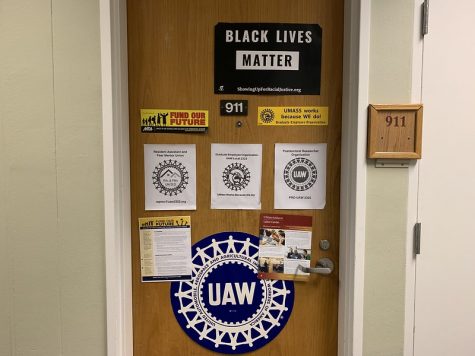
Faculty and staff will not be receiving hazard pay for the fall semester, according to a statement from the UMass Office of News and Media Relations.
Among the RA/PM Union’s demands, the union wants the University to provide all RAs and PMs whom work on campus with free COVID-19 testing and PPE. Cordero said MacKimmie and Brown did not respond positively when the union presented this particular demand during a recent impact bargaining session.
“When we suggested that COVID testing and PPE be free, they laughed at us,” Cordero said. “This is terrifying and cartoonish, but it’s true. Seventy-seven RAs and PMs were in this particular bargaining session when they did that.”
When asked for comment, Mary Dettloff, deputy director of the Office of News and Media Relations, provided the following statement: “The [U]niversity’s labor relations staff has been meeting regularly and will continue to meet with the RA and Peer Mentor union twice a week to discuss their concerns related to the fall 2020 semester.”
There are approximately 500 RAs and PMs at UMass. About 360 of them have signed a pledge indicating that they are unwilling to return to campus in the fall under the current conditions.
“If we refuse to cooperate with [the reopening plan], you cannot open the dorms without RAs and PMs staffing those dorms,” Cordero said. “That reopening plan needs to be amended to account for the safety of the workers and the students, and the whole Amherst community. And if it is not, then RAs and PMs would very well decide not to cooperate with it.”
“As with all employees who are working on campus this fall, the [U]niversity is committed to creating a safe workplace for all, especially in these times of a public health crisis. We will not comment on specific bargaining proposals while active negotiations are underway,” according to Dettloff.
The University has agreed to provide each student with one cloth mask, which they are encouraging students to wash daily. Many RAs and PMs do not think one cloth mask will provide the appropriate protection necessary to safely perform their duties and offer students support, nor do they think it is feasible to expect all students to wash their masks on a daily basis.
“We’re demanding a continuous and steady supply of PPE,” said Cordero. “That means gloves, masks, sanitizer, Lysol wipes or disinfecting wipes. These things are an absolute necessity. If you are not continuously providing your staff and your student population with them, you are really inviting a COVID outbreak.”
“If we have to deal with a resident who might be drunk, we have to be in close contact with them, and without that protective equipment, we could risk getting COVID ourselves,” Rodriguez said.
“I don’t think it is possible to wash a mask every single day,” said Tanishq Argawal, a junior resource economics major who will be a PM for his first semester this fall.
“We don’t have the laundry capacity to wash a mask every day,” said Tamar Stollman, a junior political science and BDIC double major. “You can’t live off of one mask.”
During a recent impact bargaining session, MacKimmie and Brown told union members that in addition to the one cloth mask, RAs and PMs would be provided with four free sessions at the Center for Counseling and Psychological Health, according to Stollman and RA/PM Union Co-Chair Natalie Luftman, a senior natural resource conservation major.
RAs and PMs already receive four free CCPH sessions, and all UMass students taking five or more credits per semester pay a Student Health Fee, which covers four individual therapy sessions. The CCPH website states “CCPH offers brief, individual therapy (generally, 3-5 sessions)…” specifying under “Costs” information that “If students are seen for more than four individual or eight group psychotherapy sessions, their primary health insurance will be billed and students are responsible for meeting their deductible requirements.”
Members of the RA/PM Union think the option of working remotely should be available, especially for those who have family members who are immunocompromised or have underlying health conditions themselves that leave them at a greater risk for contracting COVID-19.
“[Remote work] will reduce the campus population, reducing the possibility of an outbreak,” said Cordero. “And remote work has been done — it was accomplished in the spring. Regardless, the expectation largely is to do remote interaction with residents in the buildings. If only 60 percent of residents will be in buildings, why not have 60 percent of RAs and PMs working on-campus? And what about those residents who are doing remote semesters? What are we doing to support them and connect with them?”
“Some RAs and PMs have expressed concern because they or some of their family members are immunocompromised, and they can’t go back to campus or they won’t be able to go back home for Christmas,” Rodriguez said. “Personally, I would decide to go back because the freshmen need help transitioning, and I want to be there for them in case my coworkers are unable to come because their families are immunocompromised or they don’t feel safe coming back.”
Luftman said the duties normally required of peer mentors are mostly remote aside from a few in-person jobs. Speaking from her experience of being an RA for two years, Luftman thinks it might be slightly more difficult for RAs to work remotely as they need to be available for students, but she still thinks remote work is a possibility for both jobs.
“I definitely think it’s possible to work as an RA or peer mentor remotely, we did it all throughout the end of the spring semester, and I think we were still able to build community,” said Luftman.
One of the final demands of the RA/PM Union listed is liability and workers’ compensation for COVID-19-related harm.
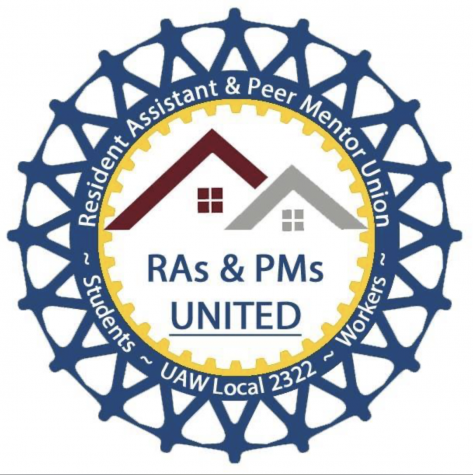
“The UMass agreement currently waives your right to hold [UMass] accountable for anything that goes wrong with exposure to COVID,” Cordero said. “We disagree with that, especially for those whom are forced to come and do their jobs on campus. We are refusing to sign the UMass Agreement, and we demand a new one for RAs and PMs that would explicitly say we are eligible for workers’ compensation under Massachusetts General Law.”
“We want to hold the University liable for any COVID-related incidents because we feel that the University is putting us at undue risk by asking everyone to come back,” Luftman said. “And so if they’re asking us to come back, they should take the responsibility if anyone gets COVID.”
Many RAs and PMs are unsure as to how they are supposed to complete their respective jobs in restricted spaces, while still adhering to safety guidelines. Rodriguez said he is concerned about holding visibility hours, which are scheduled hours during which RAs are available to students.
“I wish they gave us more options instead of just our rooms,” said Rodriguez. “They did say the common area, but if that area is not available, then we’re stuck to our rooms and we’re not really given much of an option of where we can meet the students.”
Stollman, a PM, believes such duties can be performed remotely, held virtually over Zoom or Facetime.
“RAs are not permitted to [hold visibility hours] in a public space,” Stollman said. “They can literally just do their visibility hours from their room. All interactions can be virtual for safety reasons. When we went remote in the spring, we still had opportunities for students to talk with us on Zoom or Facetime, and we still made it work.”
Peer mentors work specifically with freshmen and help with academic adjustments. Each first-year residential cluster has Residential Academic Success Centers (RASCs), where PMs hold office hours during which freshmen can meet and talk with them. RASCs will not be open for meetings or group meetings larger than 10 during the fall semester.
“I think the most important thing to consider is that UMass is banking on RAs and PMs who absolutely need this job to come back and work in these bad conditions, and that’s so awful, because let’s say someone was housing insecure and needed the wages and they have no choice but to go back to school — they’re automatically exposed,” said Stollman. “It puts people in really uncomfortable positions. I wish there was an opportunity for UMass to work with those students who still need the job but wouldn’t want to be on campus.”
RAs and PMs are also concerned about living on campus in general — many think their job requirements put them in the position of being at a higher risk for being exposed to COVID-19.
“We do a lot of activities that build community, and so I think the hardest thing that we’ll be asked to do coming back is policing students,” Luftman said. “They’re asking us to tell students that they have to socially distance, and they’re asking us to put ourselves at risk if the students are not wearing masks. As a PM, I think the hardest thing is just being there because a lot of our responsibilities are remote anyway. Being there just puts us at unnecessary risk.”
“Just the idea of being in a dorm makes me really nervous because there’s a lot of people,” said Stollman. “It’s just not a good situation overall, sharing bathrooms with people and even just passing someone in the hallway. There’s no way you can be 6 feet apart from them.”
“I’m afraid for myself, that if I go back, I may get COVID and I won’t have my family to support me through that because I’m an out-of-state student,” Luftman said.
“What is the protocol for enforcing if a student does not wear a mask or is not socially distancing?” Cordero said. “If we see a party of 25 people in a room, how can we actually safely deal with that without exposing ourselves to COVID? [Residential Life] said that they do not have a protocol in place yet, they do not know when there will be one, and they view RAs and PMs as mainly an educational tool, which I agree with. We really can’t do anything other than educate. But that raises the fundamental question of is it a good idea to have 8,000 undergraduate students in close quarters, who we’re just trusting to follow all of the rules, all the time?”
Aside from the RA/PM Union’s concerns about the current reopening plan, Cordero is also concerned about some of the plan’s terms and language.
“A problem with the current reopening plan is the Chancellor has said that if there’s a high incidence of COVID cases the campus will close again, but there’s no definition of that,” Cordero said. “That’s something we’ve been seeking and asking about and getting no answers. How many students will die before it’s a ‘high incidence’? How many will be infected?”
As of a recent impact bargaining session, all RAs and PMs are expected to be on campus for the fall semester.
The RA and PM training process was moved up by two weeks, with new RAs and PMs expected to return to campus on August 10, and returning RAs and PMs expected to return to campus on August 12.
“Basically, what they told us is most of [training] will be online, and a portion that’s not online will be in small groups,” Rodriguez said. “But almost all training will be done online, which I find ironic because they’re making everything online, but at the same time we’re required to return to campus in person.”
“That is obviously a huge disruption to many students who have other jobs, other internships and summer courses that they have committed to during that time,” Cordero said. “This is one area where we have reached a verbal agreement with the University that those who have these other commitments should be able to miss training without any penalty. However, we don’t have a written agreement yet, despite reaching verbal agreement. We have repeatedly asked for a written agreement of what we verbally agreed to.”
Currently, Stollman is not planning on retuning to campus under the current working conditions.
“I’m really just banking on UMass letting us work remotely, but it’s kind of an upwards battle right now,” Stollman said.
“I know we are in a tough position right now, many people are losing their jobs, the money is not good for anyone and I know the University might be facing difficult times too,” Agrawal said. “But I feel like the least we should be able to get is free housing and free testing.”
“Regardless of whether you have remote or in-person classes, I think that the decision to invite everyone back is a mistake because you’ve just increased the risk of everyone of campus getting COVID,” Luftman said. “We are one of the only undergraduate unions in the northeast, and so a lot of RAs and peer mentors at other universities do not have the same opportunities that we do to bargain for our safety.”
Vice Chancellor for Student Affairs and Campus Life Brandi Hephner LaBanc, Director of Residence Education Jean MacKimmie, Director of Residential Life Student Services Dawn Bond, the Office of Residential Life Student Services and the Office of the Chancellor declined to comment.
McKenna Premus is an Assistant Social Media Editor and can be reached at [email protected] and followed on Twitter @mckenna_premus.

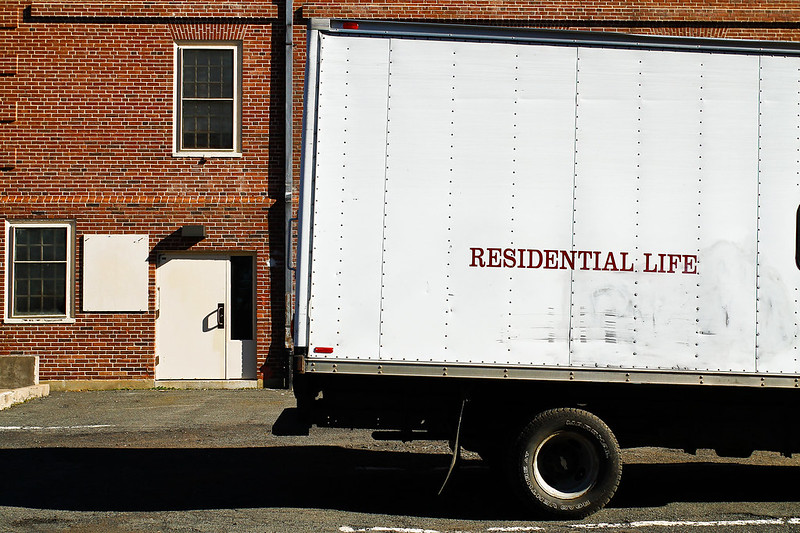







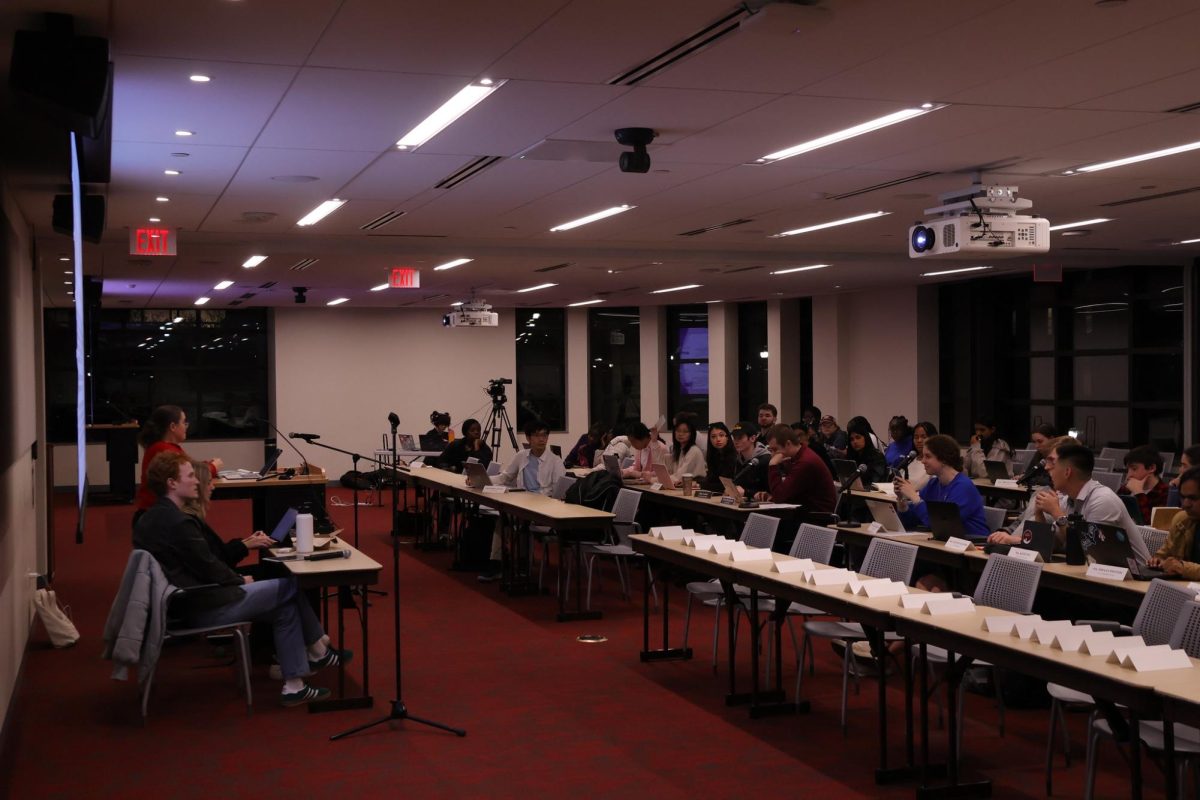
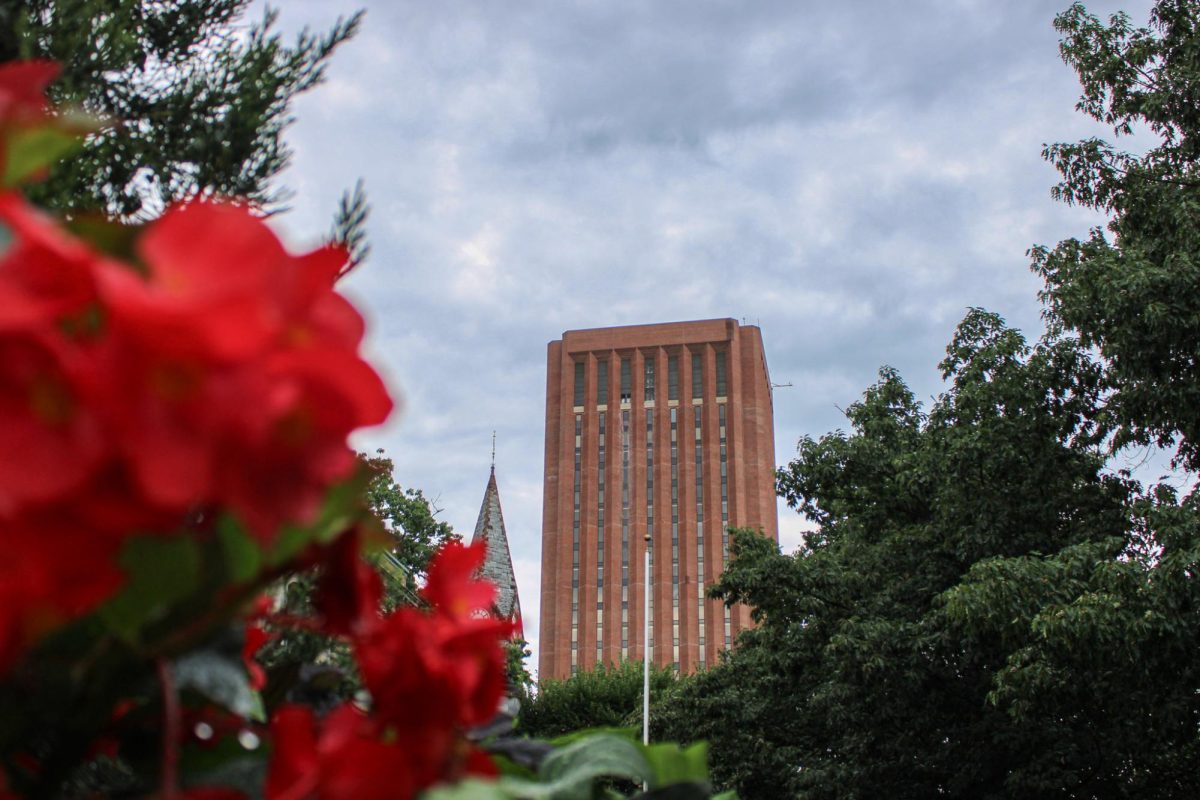


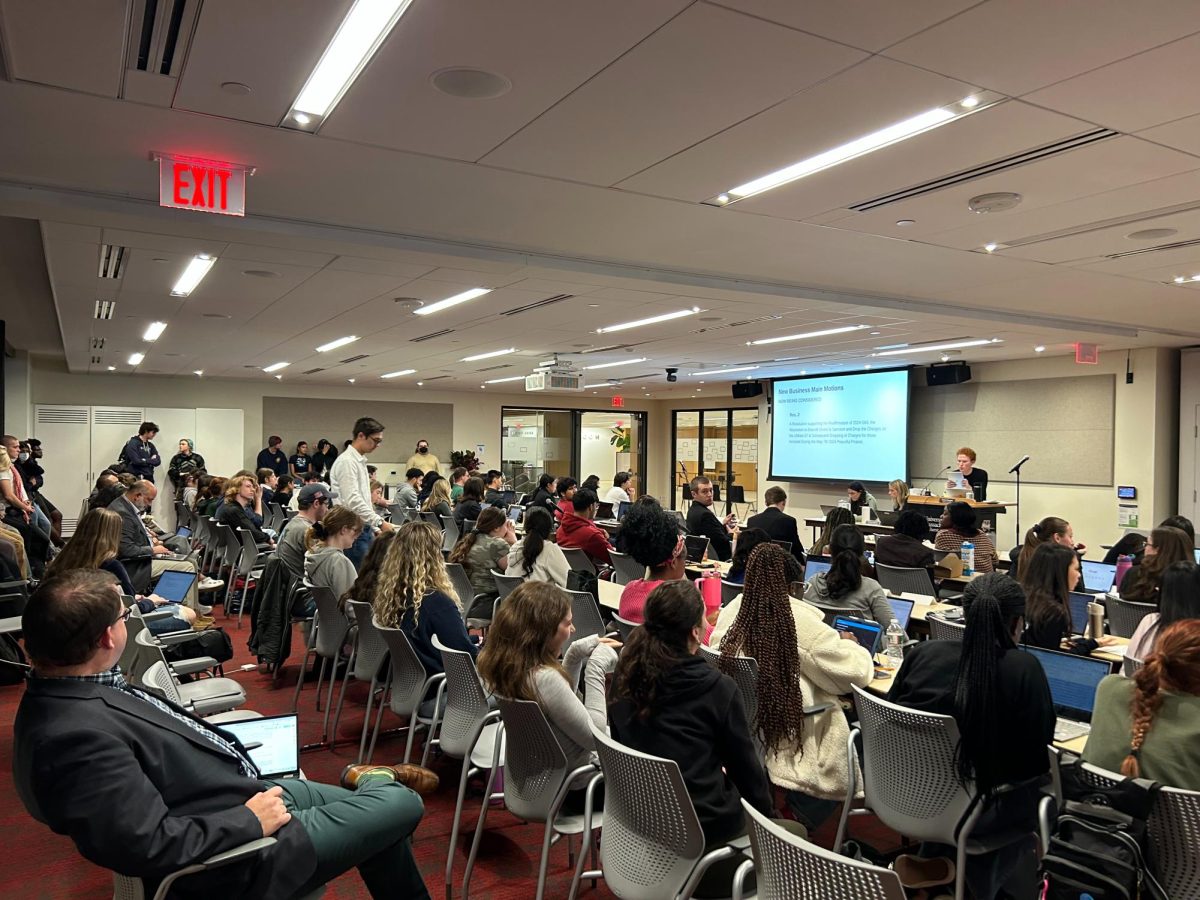
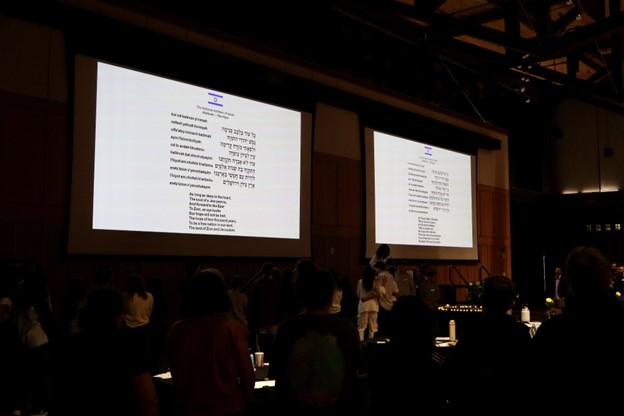





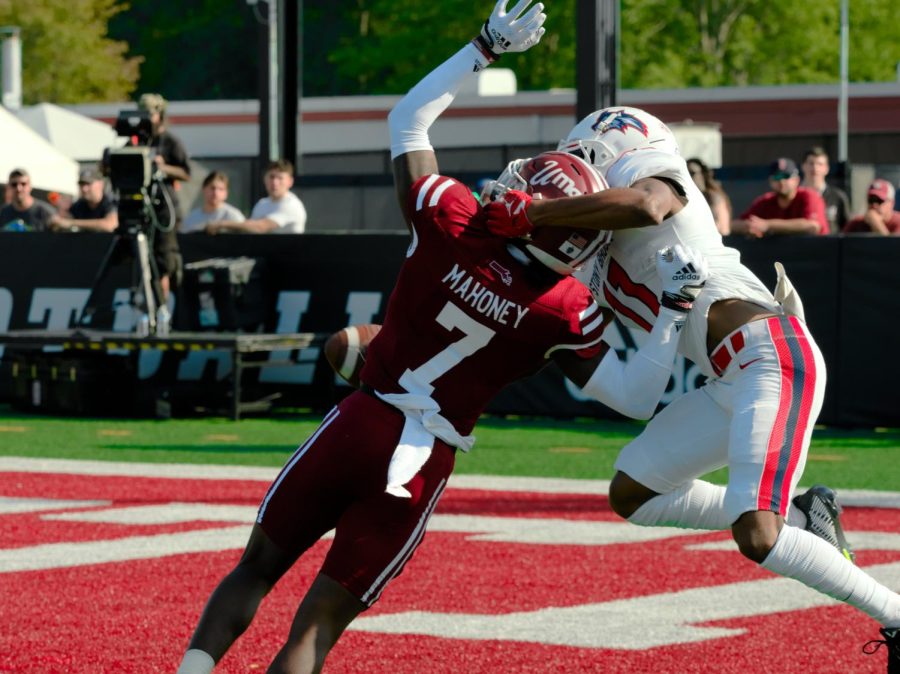
Ted • Jul 27, 2020 at 7:00 pm
Well-written article! While I sympathize with the needs of the RAs and PMs (and think some form of hazard pay should be available), the suggestion of remote work is ludicrous. There are student workers at all of the dining and food-related facilities on campus who have accepted that they either need to return to campus or find a job in their home communities. If RAs are uncomfortable with the reality of an in-person job, they need to give up their position and find an alternative form of income. Remote work only made sense when students were also remote. The spring was an exception to the rule, not the standard.